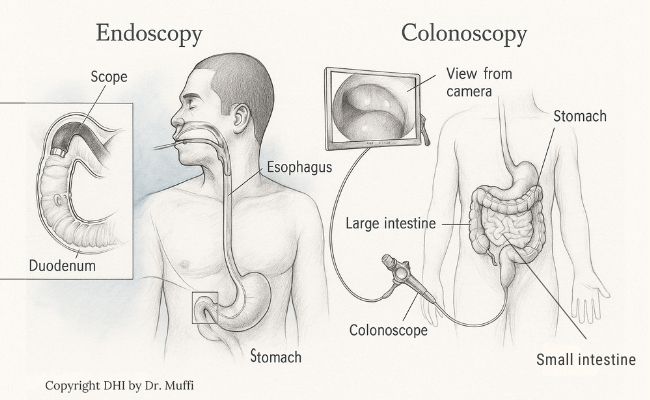Advanced Endoscopy & Colonoscopy
Introduction | Types | Procedure

What is Endoscopy?
Endoscopy is a non-surgical procedure used to examine the upper digestive tract. A thin, flexible tube with a camera (endoscope) is gently passed through the mouth to visualize the oesophagus, stomach, and upper small intestine. It helps diagnose conditions such as ulcers, gastritis, polyps, or hiatus hernia, and assists in planning further treatment or surgery.
What is a Colonoscopy?
Colonoscopy allows doctors to examine the large intestine (colon) by passing a similar flexible tube through the rectum. It is used to detect issues like polyps, inflammation, or early signs of colorectal disease.
Both procedures are performed under anaesthesia at Digestive Health Institute to ensure maximum comfort and safety for our patients. Regular screenings through endoscopy and colonoscopy are important tools in maintaining digestive health and preventing serious conditions.
What's the recovery like for advanced endoscopy?
Typically faster than open surgery, often an outpatient procedure with most patients returning to normal activities within a few days, depending on the specific intervention.
What is a colonoscopy used for?
It’s a procedure to examine the entire large intestine and rectum for polyps, cancer, or other abnormalities, usually for screening or to investigate symptoms.
How do I prepare for a colonoscopy?
You’ll need to follow a strict clear liquid diet and take a prescribed bowel preparation solution to completely empty your colon.
Transform lives through
world-class bariatric care!

India’s premier obesity & digestive centre
Phone Number
+91 9820062040
+91 8356977265
enquiry@thedigestive.in






